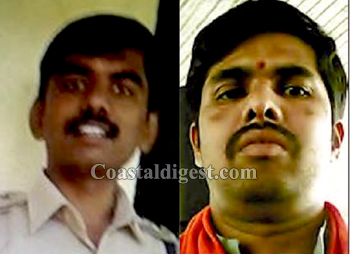Bengaluru, Jul 14: Vishwa Hindu Parishat (VHP) leader and alleged kidnapper Praveen Khandya, who is a prime suspect in the suicide of Chikkamagalur Deputy Superintendent of Police (DySP) Kallappa Handibag will be booked under the Goonda Act.
Chief Minister Siddaramaiah told Legislative Assembly that as many as 32 different cases are pending against Khandya, one of the five suspects in the case.
“The government now has sufficient evidence to book him under the Goonda Act (the Karnataka Prevention of Dangerous Activities of Bootleggers, Drug-Offenders, Gamblers, Goondas, Immoral Traffic Offenders, Slum-Grabbers and Video or Audio Pirates Act),” he said.
“Death of Kallappa is unfortunate. It is not proper to compare Kallappa's suicide case with that of the other DySP M?K?Ganapathi. The government will not shield anybody.
The CID is already investigating the case. Based on the CID?report, appropriate action will be taken against all those involved, he added. Siddaramaiah assured the Opposition that the government will examine the possibility of offering a job on compassionate grounds to Kallappa's wife. But there is no provision to give compensation to the kin of officers who commit suicide, he pointed out.






Comments
Save our country from this breed of terrorists.
below are the qualification to become a leader of VHP
- Bootlegger, drug offending, Gambling, Goondaism, Immoral traffic offending, Slum grabbing etc., etc.,.....
Then what about its followers.
Add new comment